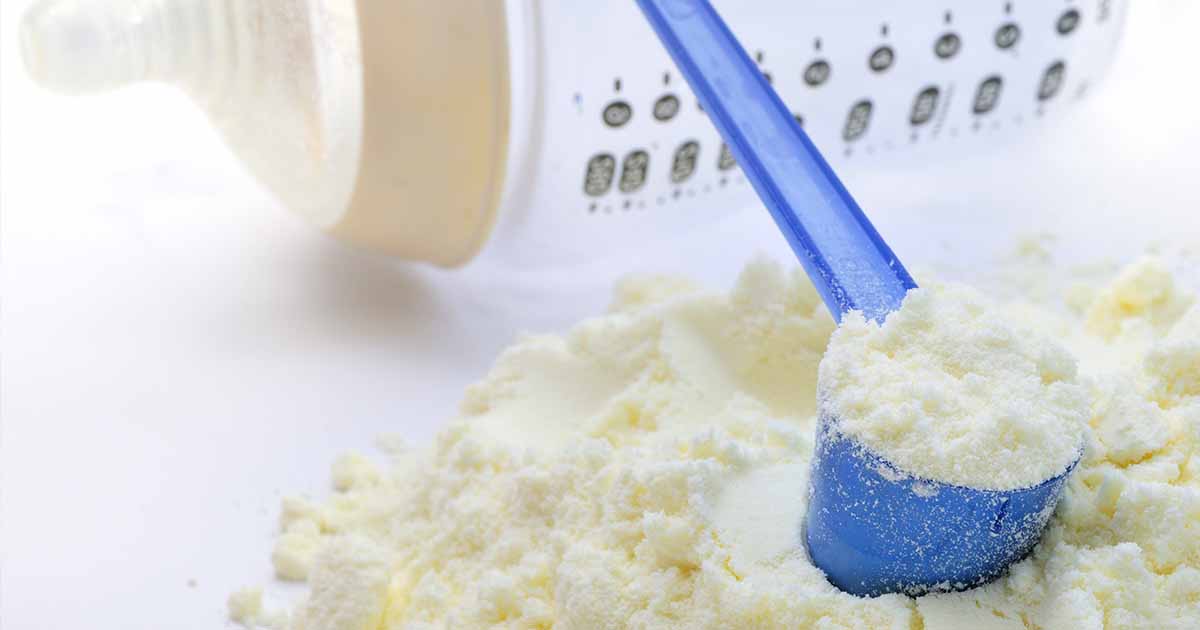The search for baby formula has put a strain on parents, even as the FDA begins to expedite imports of specific brands. While formula is often associated with babies who don’t consume breast milk, those who suffer from metabolic phenylketonuria, MSUD, and other metabolic disorders, including kids and adults, are also impacted by the shortage as they rely on specialty amino acid formula to contain and in some cases survive their condition.
Manufacturers, especially those producing critical nutraceuticals like formula, cannot afford to get caught up in supply chain obstacles, or worse, recalls. But, with the right technology, every formula manufacturer can ensure consistent quality control standards, meet regulatory requirements, and fulfill demand – even through fluctuating production schedules.
Deploy technology to overcome regulatory hurdles
Infant formula is highly regulated and needs to meet significant quality standards for product safety. This is a way of life for the industry; formula manufacturers endure greater scrutiny and must therefore remain in compliance with regulations at all times. But they can’t fulfill this objective without first collecting, organizing, and retrieving information from across all aspects of the manufacturing process.
When deployed through an ERP system, this centralized data enables companies to easily review their insights in real time and provide regulatory reporting at the time of shipment. Furthermore, the company has the resources to implement a controlled and repeatable manufacturing process where the end results are always the same, delivering consistent quality standards. If a problem occurs, manufacturers can tap their lot and ingredient sourcing data to initiate a targeted, voluntary recall that removes potentially unsafe product from store shelves, without necessarily creating a shortage.
Regulatory requirements can be daunting to interpret and apply for any manufacturer, especially those in areas as important as formula. But with ERP technology in place that handles this aspect automatically, and a system that establishes a checklist to prevent steps from being missed, manufacturers can meet their regulations while reducing the room for error. Manufacturers can gain a further advantage by automating the serialization process of units, cases, and pallets for products that must comply with federal regulations. They can also reduce the risk of process control failure by keeping critical business capabilities native to the system through validated process control to help streamline the FDA 21 CFR Part 11 validation process.
Use advances in ERP to increase operations and meet demand
With the shortage expected to continue for the foreseeable future, other formula manufacturers, including Nature’s One and ByHeart, have ramped up production to help fill the void. In particular, ByHeart transitioned to 24-hour operations to continuously produce formula seven days a week as new customer volumes increased 15 times more than anticipated. A transition of this magnitude can be exhausting, so it is important to have a system in place to manage and monitor inventory, production, and shipping through a streamlined and automated process.
Manual calculations of these operations will no longer suffice, but neither manufacturer is going at it alone – they’re using ERP technology to control quality and ensure efficiency. This ensures consistent results and a full audit trail of all transactions, providing complete lot control and traceability throughout the entire product lifecycle. And by relying on material requirement planning to better prepare, formula manufacturers can reduce production time and material waste by calculating demand based on sales orders, scheduled jobs, and other indirect requirements.
Prevent future problems from escalating
Black swan events are nothing new, but in an era of high inflation and continuous supply chain disruptions, nearly everyone is feeling the burn. Formula manufacturers need to be able to bounce back quickly to prevent any and all problems from escalating and maintain effective formula management and quality control processes to ensure consistency in product quality.
As manufacturers work through difficult moments, whether caused by an undeclared allergen, the contamination of a key ingredient, or abnormally high inorganic compounds, they need to quickly pinpoint the source of the issue. From formula to baby food and beyond, consumers not only want but expect these foods to be safe and frequently tested, and promptly recalled if they are not. If a manufacturing issue becomes too big to contain, they’ll need technology that can help them address the problem quickly and effectively to get back on track. This helps to protect manufacturers as well as consumers, who will be empowered to shop confidently without having to continually worry about empty shelves.
This article was originally published on Food Industry Executive.

